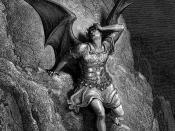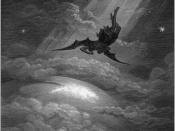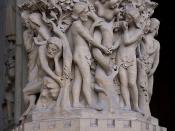In an age in which promiscuity, free living and women's liberation were not the catch phrases they have grown to become in this modern era, the title character of Daniel Defoe's Moll Flanders lives a life of sexual independence that was shunned in the seventeenth century, a time of straight laced ethics and closed door relationships. "Twelve Year a Whore, five times a Wife," Flanders lives an extraordinary life of survival and seduction, utilizing her greatest asset---her beauty---to help her rise above her meager beginnings as a inmate of Newgate Penitentiary. In order to escape her hard luck life, Moll soon realizes that while she may not possess monetary wealth, her stunning looks are more than enough to earn her a comfortable, albeit nomadic, life. Throughout the novel, we see a woman born into an unfortunate situation, left with little more than her feminine wiles, who fights preconceived notions of sexuality and the norms of a stifling society to improve her inherited station.
It is this sexuality, and her willingness to step out from under the standards of society, that allows Moll to climb the social ladder and finally, at the ripe age of seventy, reach its pinnacle.
While Flanders can be viewed as an ideal example of freedom achieved through open sexuality, Eve-- in John Milton's Paradise Lost-- can arguably be seen as the polar opposite. Residing in the Garden of Eden, alone with only Adam and living in the embodiment of Paradise, Eve unwittingly uses her sexuality to her disadvantage, allowing Satan (in the form of a serpent) to flatter her incessantly until she is finally convinced to eat of the forbidden fruit. It is also this innate sexuality that persuades Adam to succumb and disregard God's only directive, partaking in the Tree of Knowledge. He is unable...


